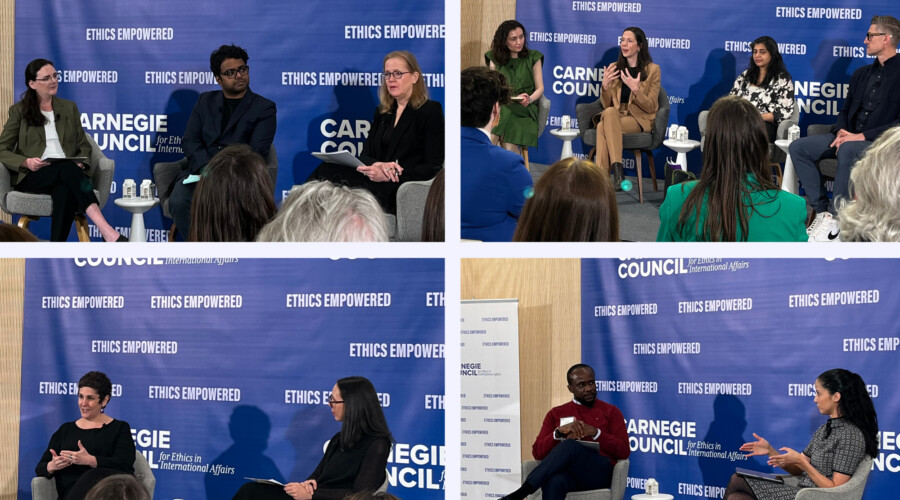President Barack Obama campaigned for office on the promise of a fresh approach to global policy in the United States. Is his administration guided by such an overarching grand strategy? In March 2010, midway through Obama's first term, 50 Next Generation Project (NGP) Fellows from around the country convened in Washington, D.C. to make an assessment. Five of these fellows were selected from the Carnegie Council's Carnegie New Leaders program. They were Derek Berlin, Jeff Hittner, Peter Kanning, Robin van Puyenbroeck, and Carnegie New Leaders Program Director Devin Stewart.
One major point the Fellows elucidated was the shift in the international distribution of powers—the "rise of the rest," in which there are multiple important actors besides the U.S., with issues such as global climate change and energy security increasing the complexity of today's world arena. Some Fellows thought this meant that a world power must have a defined grand strategy while others questioned the relevance of old-fashioned balance-of-power politics in an age of rapid globalization and interdependence.
Another important discussion concerned the insular nature of foreign and national security policymaking and the U.S. government's need for strategic engagement, as it fails to leverage other diverse pools of talent, such as its universities and the thousands of students studying abroad, its numerous sister cities all over the world, and the private sector. Here is a link to the resulting report, entitled U.S. Global Policy: Challenges to Building a 21st Century Grand Strategy.
NGP was created in 2006 by The American Assembly, and involved five meetings in regions of the country that are growing in economic and political importance. More than 300 emerging leaders, who represented a diversity of views, interests, and backgrounds, were brought together to participate in discussions about U.S. global interests. Twelve NGP Fellows have joined the Obama Administration.
With the success of the first phase of the project and with the support of the Ford Foundation, The Assembly joined with the Strauss Center, the Center for a New American Security, and the Meridian International Center to hold three one-day meetings, of which this March convening was the second.
As discussed at the previous NGP Assembly, "Obama—One Year Later," the priorities and agenda of the Obama presidential campaign have not always translated into actual policy. As such, this March meeting set out to identify U.S. global policy goals in the Obama administration and make recommendations for creating a successful grand strategy in the future.
The Assembly opened with a panel on "Grand Strategy in an Age of Smart Power," moderated by Francis J. Gavin, project director and director of the Strauss Center for International Security and Law at The University of Texas at Austin. Vikram J. Singh, senior defense advisor to the special representative for Afghanistan and Pakistan; Daniella Foster, director of Public-Private Partnerships, Department of State; and Colin H. Kahl, Deputy assistant secretary of defense for the Middle East, participated in the panel. Anne-Marie Slaughter, director of Policy Planning, Department of State, addressed the Fellows at a luncheon plenary session.
Afterward, the Next Generation Fellows analyzed why the United States needs a grand strategy and what parts of government are responsible for crafting and implementing this vision. The Fellows then discussed the elements of its framework and how to make this grand strategy accessible and compelling to global policy audiences. The resulting report was compiled to represent what was said at the meeting, and no attempt was made to reach conclusions or achieve consensus.
The American Assembly, an affiliate of Columbia University, was founded by Dwight D. Eisenhower in 1950 with the mandate to illuminate issues of public policy. The Assembly seeks to provide information, stimulate discussion, and evoke independent conclusions on matters of vital public interest. A non-profit, nonpartisan organization, The Assembly fulfills its mandate by commissioning original research, convening meetings, and issuing authoritative books and reports.



